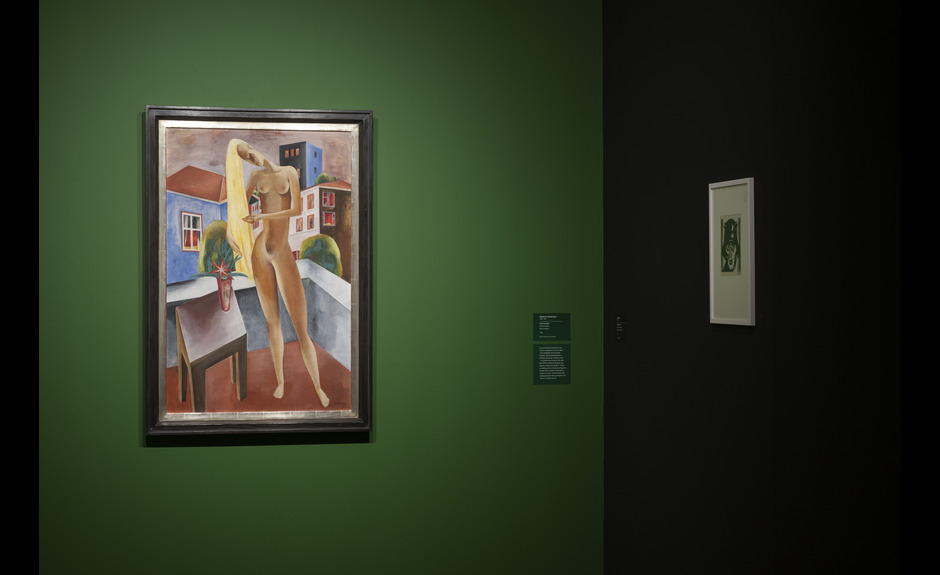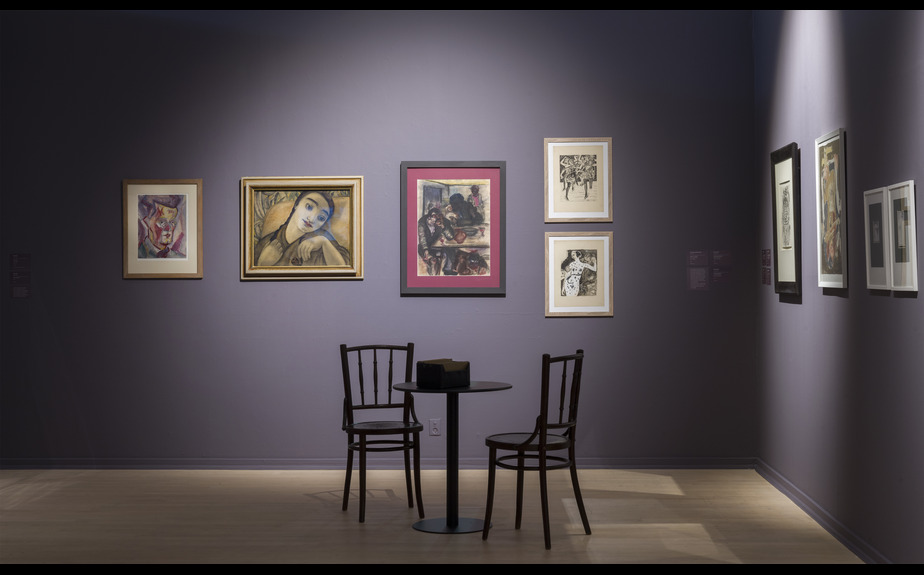BREAKUP. Hamburg art from the 1920s and 30s
March 23 – September 1 2024
Lately, art from interwar Germany has received renewed interest. More often than not, the main interest has centered on Berlin and the avant-garde of the metropolis. But how did the breakthrough for new ideas and experiments happen in the rest of the country? And which parallels may be drawn to politics and society, as well as to today’s questions about centre vs periphery?
The exhibition is compiled in cooperation with Maike Bruhns, who is an art collector and art history professor. Since the 1980s she has carried out research into Hamburg-based interwar art. She has traced and found works thought to have been lost during the Nazi period, and she has played a pivotal role in the rehabilitation of the Hamburg scene. Today, her collection consists of more than 3000 works, part of which we now have the opportunity to exhibit.
We have chosen to focus on the emergence of new formal and thematic expressions from the 1920s and 1930s, reaching back into the 1910s and forward into the 1940s. In this way, the presentation is suspended between the two all-encompassing tragedies, WW1 and Operation Gomorrha in 1943, during which the bombardment of Hamburg by the Allies in a mere week killed 30.000 people and put the city to ruins.
The exhibition thus exclusively presents works by Hamburg artists who have, in various ways, been marginalized and considered politically incorrect. This creates present-day connections to important societal issues concerning censorship and minority rights, and in line with our continuing focus on the exhibition as a unique medium, intimate encounters are created between works, enforcing the universal themes across time and context.
Friedrich Ahlers-Hestermann, Alma del Banco, Harry Behr, Paul Bollmann, Ervin Bossanyi, Eric Brill, Gabriele Daube, Max Deiters, Ewald Dülberg, Alfred Ehrhardt, Lore Feldberg-Eber, Arnold Fiedler, Otto Fischer-Trachau, Paula Gans, Willem Grimm, Richard Haizmann, Eric Hartmann, Ivo Hauptmann, Eduard Hopf, Hella Jacobs, Kurt Jückstock, Hans Käbnick, Max Kahlke, Franz Kammigan, Karl Kluth, Emil Kritzky, Fritz Kronenberg, Annemarie Ladewig, August Lange-Brock, Carl Lohse, Elfriede Lohse-Wächter, Dorothea Maetzel-Johannsen, Willi Nass, Karl Opfermann, Anita Rée, Otto Rodewald, Hans Mar0n Ruhwoldt, Gertrud Schaeffer, Herbert Spangenberg, Heinrich Stegemann, Maria Wenz, Theo Wilhelm, Wilma Wille, Albert Woebcke, Gretchen Wohlwill, Klaus Wrage, Johannes Wüsten, Emanuel Zimmermann og Reinhold Zulkowski.






